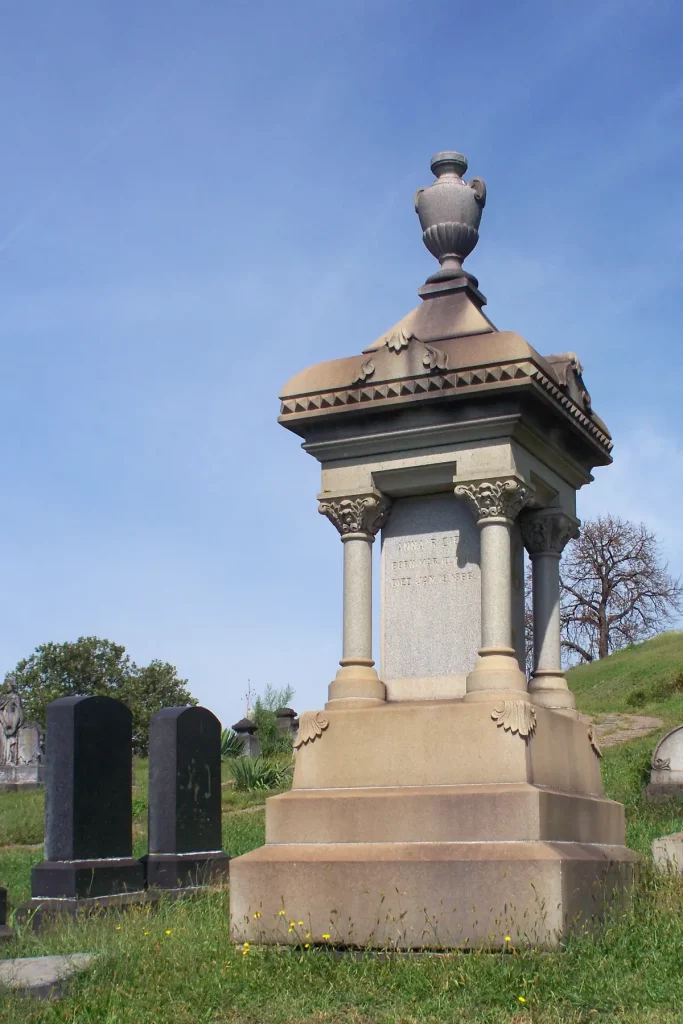
A standard Ionic temple, undistinguished perhaps but very elegant.

A standard Ionic temple, undistinguished perhaps but very elegant.
This fine polished-granite mausoleum announces his name to anyone who visits this sheltered corner of the cemetery; but D. L. Clark’s real monument is the Clark Bar, which trumpets his name to anyone who visits a convenience-store cash register. Polished granite was expensive, but a very good choice for Pittsburgh, since the grime of industry could be wiped off with little labor and no damage to the stone.
If this mausoleum looks a bit like a miniature courthouse, then Mr. Burleigh should feel right at home: he earned his greatest fame, or infamy, as the Allegheny County district attorney who prosecuted the Homestead strikers in 1892. He was later Pittsburgh city solicitor for many years. You may ask how a man who devoted his life to public service gained the kind of wealth evident in this splendid Ionic temple; but if you do ask it, it is because you are not very familiar with Pittsburgh.

A fairly lavish monument for a German hilltop cemetery. The style could be described as Victorian Corinthian. Christian Zies died in 1874, and that may be about the date of this monument; but it could also be a bit later.
Satanists (which is to say drunken giggling teenagers) have vandalized this and a few other monuments in the cemetery, but the stone will long outlast their paint, which is wearing off.


Mr. John Weakly Chalfant died in 1898, but in 1930 his heirs took it into their heads to have the Ecclesiastical Department of Tiffany Studios design this very elegant classical structure, in which he was reinterred. The whole design is clearly meant to show off a Tiffany stained-glass window, but the window was stolen more than thirty years ago.
